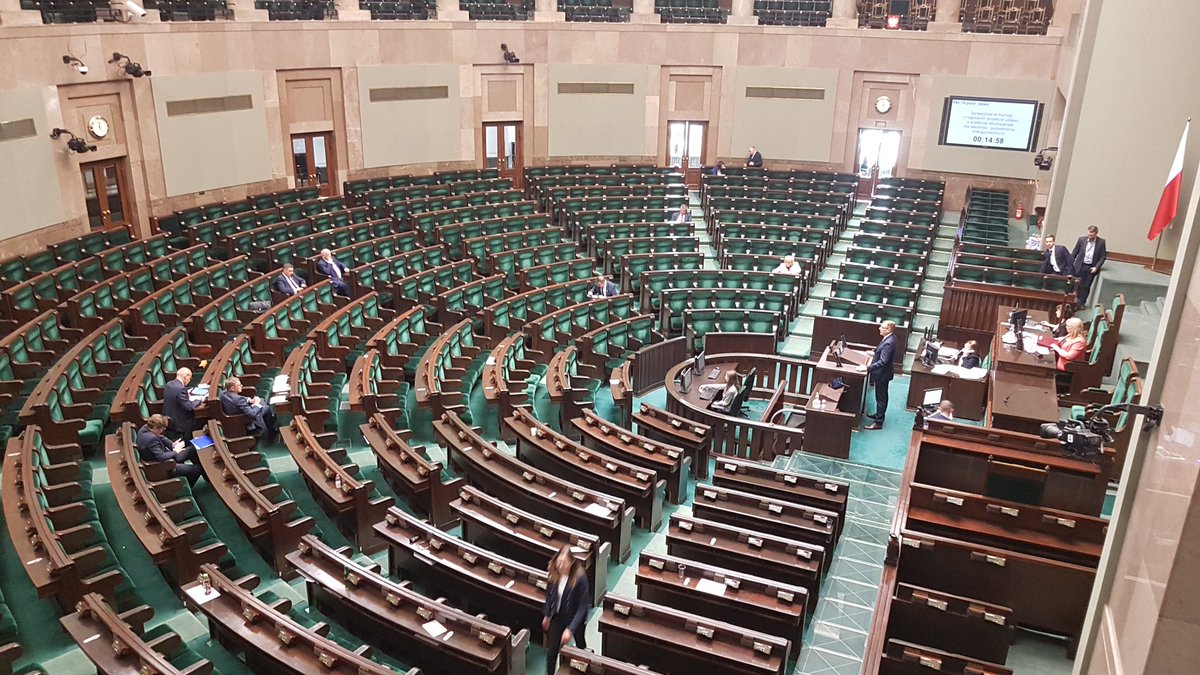Experts from Instrat recommend that the new government create an agency for energy and climate transition. The foundation claims that an internal government think tank would strengthen the analytical capabilities of the administration and drive the work on the energy strategy and monitor its implementation.
Experts from the Instrat Foundation recommend that the new government establish an agency for the energy transition in response to the demands made by representatives of the Civic Coalition. „Among the electoral proposals of the Civic Coalition regarding the transformation of the energy sector is the creation of a dedicated agency coordinating the work of ministries responsible for government departments such as energy, climate and environment. The so-called „Morawiecki’s plan”, aka a strategy for Responsible Development, also recognized that there was a problem with the lack of staff and institutional weakness of public offices. When the state is weak and incapable of carrying out current and planning new tasks, ideal conditions are created for the influence of interest groups. Then the public and social interests are neglected,” writes the Instrat Foundation.
The president of the foundation, Michał Hetmański, emphasizes that many years of delays in the development and adoption of strategic documents are the result not only of the lack of political consent of the outgoing government. „In order to plan and monitor well the implementation of new tasks related to the implementation of EU climate policy and ownership reform of the energy and mining sectors, it is necessary to use well-drafted and internal analyses and strategies, and not outsource their development. The tasks set before the ministries have exceeded their capabilities, therefore it is necessary to draw conclusions from this lesson and create an internal government think tank,” he explains.
The Instrat experts argue that the agency should operate as a separate and independent government think tank, which would report directly to the Prime Minister. Over time, it should take over selected tasks and competencies related to planning and monitoring the transformation, which until then were in the hands of ministries, their subordinate institutions or outside advisers. The main tasks mentioned in the analysis include „conducting research on public statistics, modelling ways to reduce greenhouse gas emissions and the energy mix (as a key element of the PEP2040 strategy) and supporting legislative processes,” the report said.
Recommended location of the Polish Agency for Energy and Climate Transformation in the institutional environment among government institutions and stakeholders. Source: Instrat.
According to Instrat, one of the factors that weakened confidence in government energy strategies in recent years has been setting unrealistic goals, for example, 1 million electric cars in 2025, or underestimating the increase in installed RES capacity in Poland’s energy policy until 2040. „The newly established agency should counteract such discrepancies and obvious errors, not only by drafting market analyses itself and using existing ones, but also by providing a platform for discussion and monitoring the development of key technologies. Transformation is not only about energy but also about other sectors, the understanding of which is crucial for the development and implementation of the government’s energy strategy. The list of recommended research topics includes renewable energy sources and nuclear energy, coal mining and fossil fuel industry, energy-intensive industry, as well as climate policy and fair transition and environmental protection. Virtually every government document or law on the energy sector affects from three to even ten departments of government administration. This interdisciplinarity is a challenge,” experts say.
According to Michał Hetmański, a task as important as analytical work should be active cooperation with a wider environment than ministries and government institutions. „Sharing knowledge with independent think tanks, social organizations, but also with stakeholders who have a negative attitude about the transition, such as mining unions, would help the government to carry out its tasks. Openness would ensure a positive public perception and understanding of the public policy objectives,” the expert believes.
The authors of the analysis list the pitfalls and risks that may arise while establishing the energy and climate transition agency. „First of all, in the conditions of a broad government coalition, there is a fear of a lack of confidence in the mission and results of the agency’s work. In order to make the agency independent of the management of the ministry to which such organizations usually report, it should be appointed directly under the Prime Minister’s office. This will give it a strong political mandate and confidence,” the report said.









